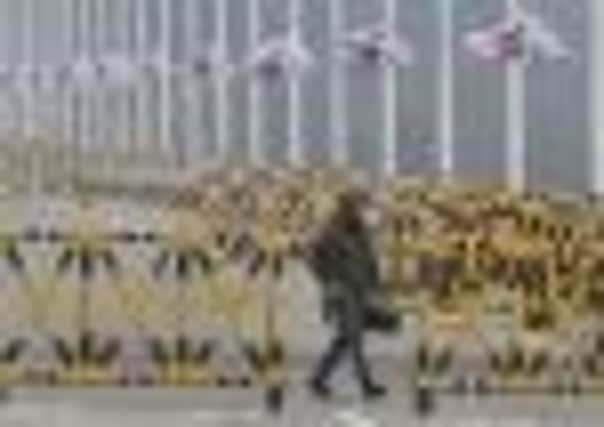North Korea: Britain to keep Pyongyang embassy open


British officials have been warned by the North Korean authorities that they would be unable to guarantee their safety if war broke out after 10 April.
The Foreign Office criticised Kim Jong-un’s regime for ramping up tensions in recent weeks and urged it to work “constructively” with the international community.
Advertisement
Hide AdAdvertisement
Hide AdA spokesman said: “Earlier today, the North Korean ministry of foreign affairs informed a number of embassies of foreign countries in Pyongyang, including the British Embassy, and representatives of international organisations that they would be unable to guarantee the safety of embassies and international organisations present in the country in the event of conflict.
“They invited the embassies and organisations present at the meeting to inform them by 10 April what assistance they would require from the DPRK [Democratic People’s Republic of Korea] should they wish to be evacuated from DPRK or to be relocated elsewhere.
“We are consulting international partners about these developments. No decisions have been taken, and we have no immediate plans to withdraw our embassy.
“In recent weeks, the North Korean government has raised tensions on the Korean peninsula and the wider region through a series of public statements and other provocations. We condemn this behaviour and urge the North Korean government to work constructively with the international community, including over the presence of foreign embassies.”
The government has warned North Korea of its obligations under the international Vienna convention to protect diplomatic missions and said the move over the embassies was an example of the “continuing rhetoric” against the United States.
On Thursday, Prime Minister David Cameron said Pyongyang possessed weapons that could threaten the UK. “North Korea does now have missile technology that is able to reach, as they put it, the whole of the United States,” he said. “If they are able to reach the whole of the United States, they can reach Europe too – they can reach us too. That is a real concern.”
North Korea has even been warned by former Cuban leader Fidel Castro, a long-time ally. The 86-year-old described the current tensions as one of the “gravest risks” for nuclear holocaust since the Cuban Missile Crisis in 1962.
Writing in Cuban state media, he said: “The Democratic People’s Republic of Korea was always friendly with Cuba, as Cuba always has been and will continue to be with her.
Advertisement
Hide AdAdvertisement
Hide Ad“Now that it has demonstrated its technical and scientific advances, we remind it of its duties to other countries who have been great friends and that it would not be just to forget that such a war would affect, in a special way, more than 70 per cent of the world’s population.”
The latest crisis follows anger in Pyongyang about sanctions imposed as a result of its nuclear programme, and joint military drills involving US and South Korean forces. The North’s military says it has been authorised to attack the US, and South Korea’s defence minister claims its neighbour has moved a missile with “considerable range” to the east coast, making it potentially able to hit targets in the South or Japan.
South Korea has reportedly deployed two warships with missile-defence systems in response.